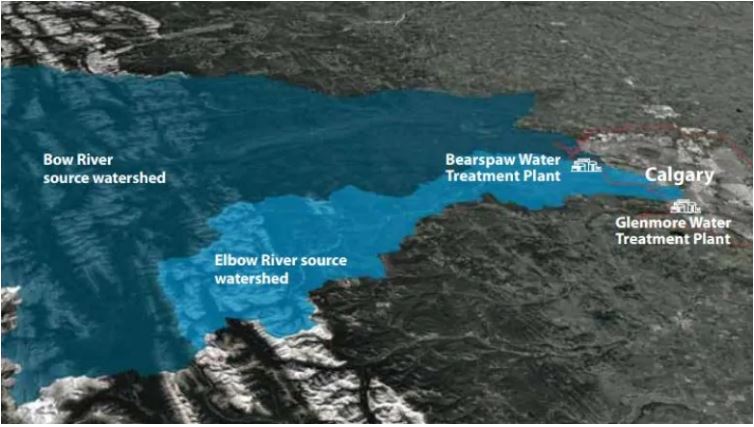Most Canadians take safe, clean drinking water for granted – most, but not all. In fact, over 17,600 people in Saskatchewan, Manitoba, and Ontario alone are currently living under a drinking water advisory that has been in place for longer than a year. These Canadians, the vast majority of whom live in First Nations communities, rely on bottled water for hydration, cooking and personal hygiene.
Destructive freshwater Zebra mussels officially found in Atlantic Canada
Zebra mussels, an invasive species that kills native mussels and chokes drinking water systems, have been discovered in the Saint John River in New Brunswick, the farthest east in Canada they've been positively identified. Fisheries and Oceans Canada said last week in a release that environmental DNA tests over the summer had detected the presence of the small Eurasian freshwater mussels with the telltale striped pattern in parts of the river as far apart as Edmundston, Grand Falls and Nackawic, communities that span more than 200 kilometres.
Yukon's Minto Mine ceases operations, territory steps in to secure site
Streicker says the priority is to ensure that the site is secure, and that water treatment continues. He said the territorial government immediately hired a contractor who then had the water treatment facilities back up and running "basically within 24 hours." "The team has moved very quickly and the reports I'm getting are that things are in hand," Streicker said Monday morning.
$1.2B later, Teck Resources has barely put a dent in its pollution problems, documents show
As Teck Resources plans to distance itself from coal, government records show the mining giant remains a long way from solving the widespread contamination of local rivers and creeks — despite having already invested $1.2 billion in water treatment. Last year, selenium levels 267 times higher than what’s considered safe for aquatic life were detected in waters directly affected by Teck’s Elk Valley mines, according to an internal government meeting note obtained by The Narwhal through a freedom of information request.
Teck Coal appeals B.C. fines for contaminating Kootenay waterways
A local First Nation says it's "disappointed" Teck Coal is seeking to reduce the $16 million in fines it was assessed by the B.C. Ministry of Environment in January for polluting waterways in B.C.'s East Kootenay. In January, the province imposed three administrative penalties on Teck Coal Limited, a subsidiary of Teck Resources, citing the company's failure to have water treatment facilities ready by a required date.
flood, Peguis First Nation, flood mitigation efforts, condemned homes, mould, Manitoba, First Nation, flood-prone, forcibly surrendered, basin, dike work, worst-case future scenarios
Environmentalists are raising concerns about the future of Nova Scotia's only operating gold mine. Gold from the open pit at the Touquoy mine in Moose River, N.S., has already been exhausted, so active mining stopped at the end of January. The mine's owners, Australian company St Barbara, say they are now turning their attention to processing stockpiles, which are lower grade ore and less profitable.
Samsung Electronics Announces New Environmental Strategy
Samsung Electronics Co., Ltd. today announced its new environmental strategy, a comprehensive effort to join global efforts to tackle climate change. It includes commitments to achieve enterprise-wide net zero carbon emissions and plans to use more renewable energy, as well as to invest in and research new technologies to develop energy-efficient products, increase water reuse and develop carbon capture technology.
Long-awaited water pipeline for Okotoks, Foothills County receives nearly $16M from province
A project that will help the town of Okotoks and Foothills County secure a long-term water supply will receive a provincial grant of $15.9 million, Alberta Minister of Transportation Prasad Panda announced Wednesday. The project, a water pipeline that will feed from where the Highwood River meets the Bow River into water treatment facilities in Okotoks and Foothills County, will receive the funding through Alberta's Water For Life program. "It's still a little surreal that we're here. I always knew we would get here, but we've had lots of stops and starts," said Okotoks Mayor Tanya Thorn, who was elected to the top job last November but sat on town council for the previous eight years.
Water and Wastewater Treatment Market Worth $956.48 Billion by 2032 -- Exclusive Report by Meticulous Research®
According to a new market research report titled, "Water and Wastewater Treatment Market by Type (Water Treatment, Wastewater Treatment), Offering, Application (Municipal, Industrial), and Geography — Global Forecast to 2032," published by Meticulous Research®, the water and wastewater treatment market is expected to grow at a CAGR of 5.4% from 2022–2032 to reach $956.48 billion by 2032.
Upstream wildfires could contaminate Calgary's drinking water — so the city's planning ahead
Wildfire season is getting longer in Alberta every year with climate change, scorching land and polluting the air with thick smoke. But, the City of Calgary is studying another, perhaps less obvious, impact of wildfires — drinking water contamination. There haven't been any major fires in the Bow and Elbow river watersheds, upstream of the City of Calgary, for years. But, there are fears a major fire west of the city could wash burned material into the rivers, impacting the drinking water supply for the city's 1.4 million residents.











